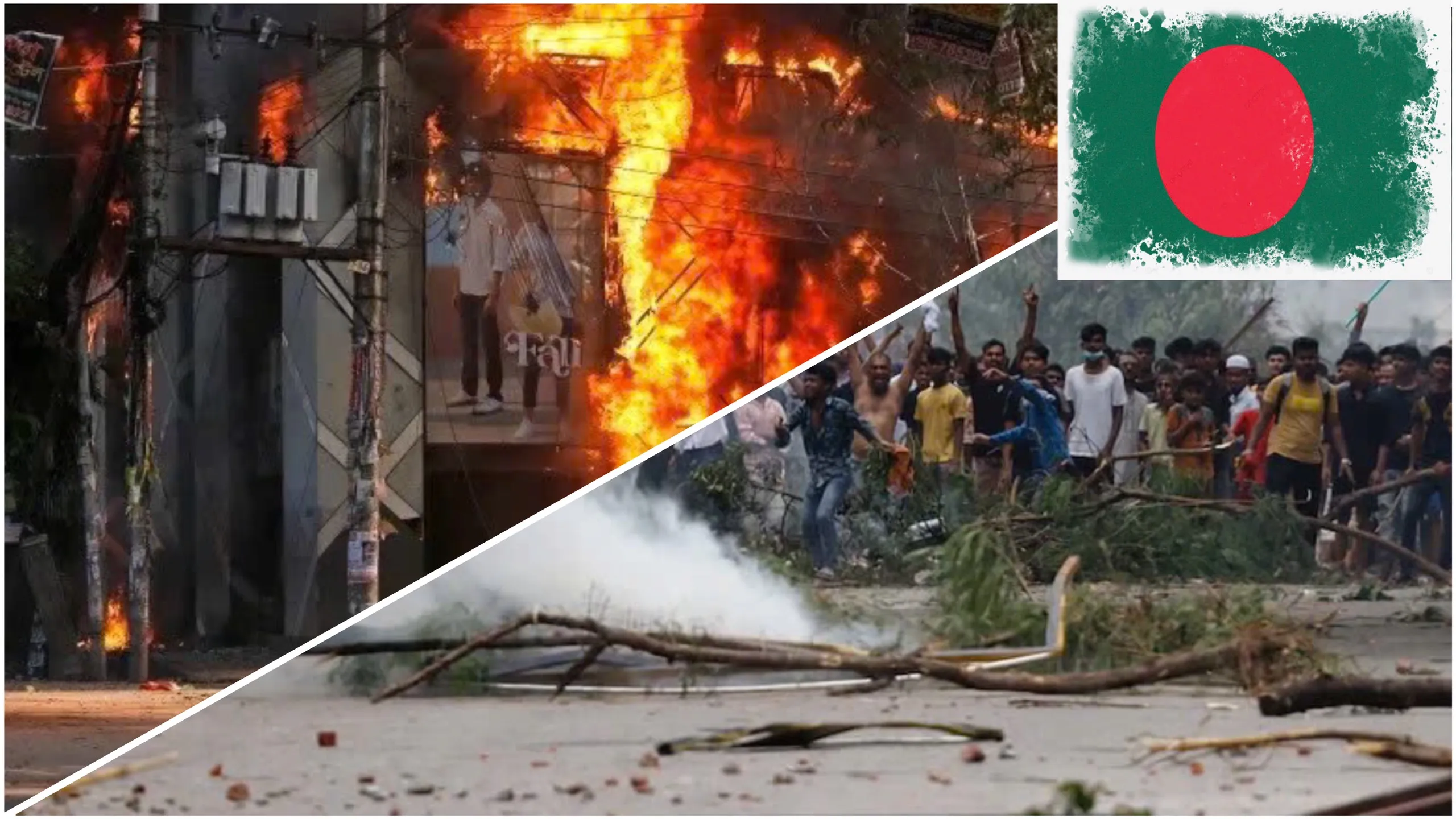
Violent clashes in Bangladesh on August 4 claimed nearly 100 lives and are threatening to continue. On August 5, students were determined to organize protests, calling for a march on the capital Dhaka, despite the imposed curfew. The situation became more tense than ever as chants rang out, reflecting the people’s thirst for justice and change.
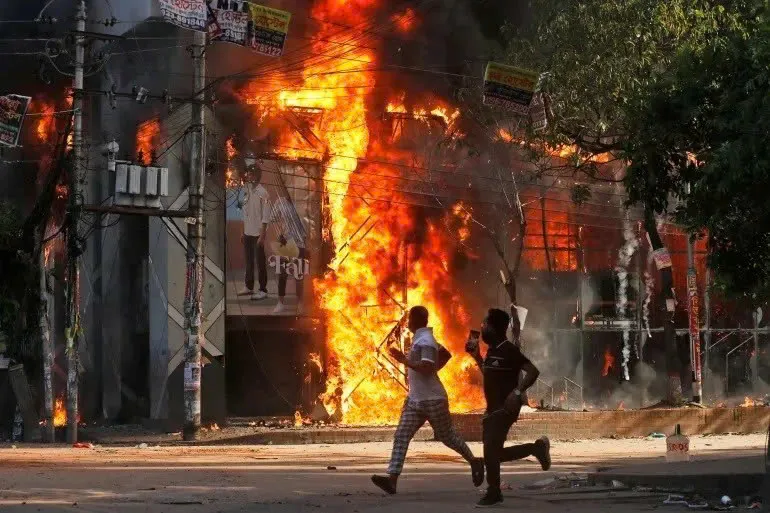
Reuters news agency quoted an online news channel as saying that on August 5, army tanks and police vehicles were present on the streets of the capital Dhaka, while security forces conducted foot patrols. There was almost no civilian traffic, except for a few motorbikes and three-wheelers.
Earlier on August 4, Al Jazeera news agency reported that at least 91 people were killed and hundreds injured in a wave of violence across the South Asian country of 170 million people, when police fired tear gas and rubber bullets to disperse tens of thousands of protesters.
Protesters blocked major highways and even attacked a medical college hospital in the capital Dhaka, causing chaos. In response to this serious incident, Bangladesh’s Health Minister, Samanta Lal Sen, strongly condemned the violence and called for restraint, stressing the importance of protecting medical facilities in times of crisis.
In response to the violent protesters, police were forced to use tear gas to disperse the chaos. Amid rising tensions, the Bangladesh Home Ministry has imposed an indefinite curfew nationwide, effective from 6pm local time on 4 August, to restore order and stability.
After an emergency meeting of the National Security Council on 4 August, Prime Minister Sheikh Hasina strongly condemned the protesters for destabilizing the country.
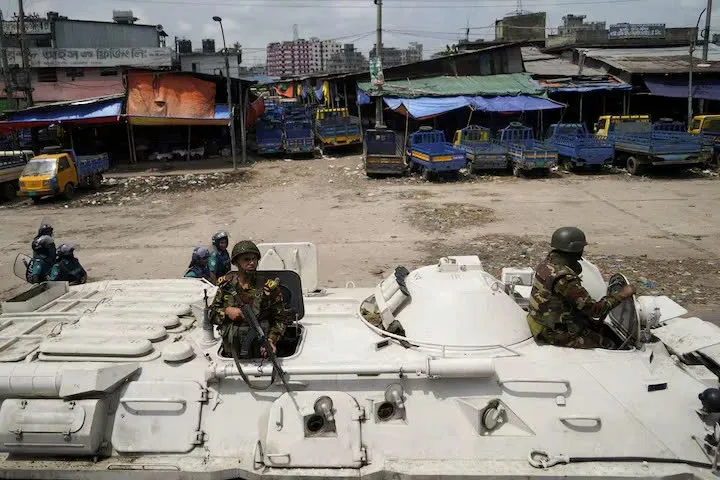
Bangladeshi army in the capital Dhaka (Bangladesh) on July 20. Photo: REUTERS
The situation has become more tense since a wave of violent protests broke out in Bangladesh since July, led by student groups, against quotas in the recruitment of state employees. Calls for fairness and change are ringing, raising concerns about the future of the country.
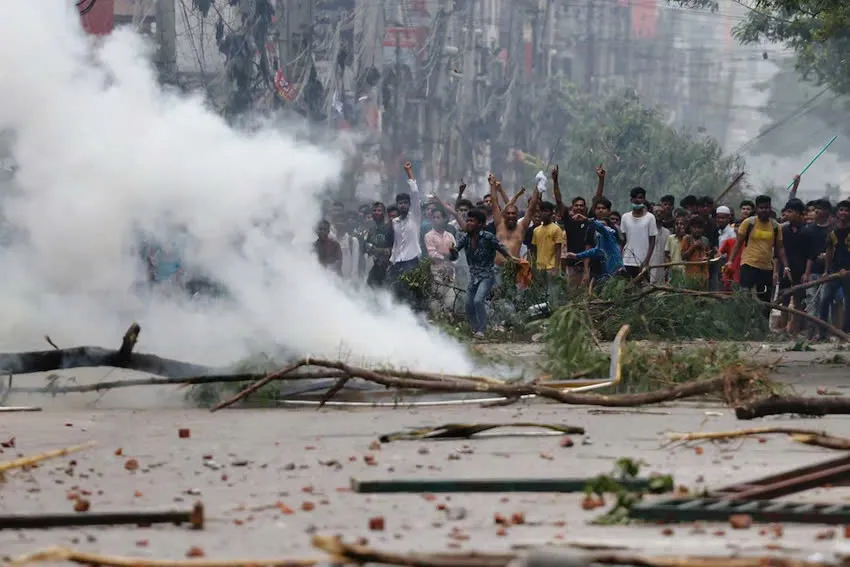
Bangladeshi students protest in Dhaka (Bangladesh) on July 19. Photo: REUTERS
The protests have subsided after the Bangladesh Supreme Court decided to abolish most quotas, opening the opportunity for students with excellent academic records to apply for 93% of jobs in the state sector without being restricted by the quota system. However, despite this change, protest chants have begun to re-emerge since last week, showing that the fire of hunger for justice and reform has not yet been extinguished.
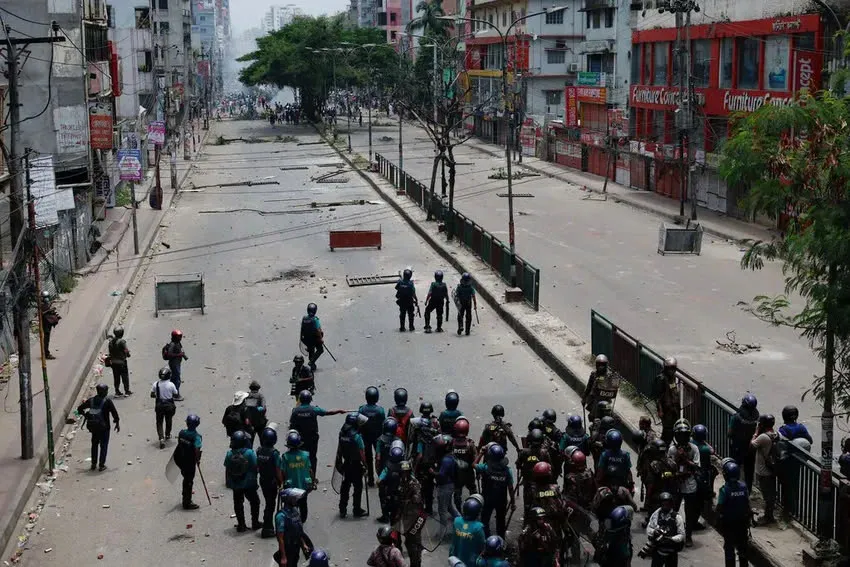
Police respond to Bangladeshi students in Dhaka, Bangladesh, July 19. Photo: REUTERS
The unrest has forced the Bangladeshi government to suspend high-speed internet services, while social media platforms Facebook and WhatsApp are unavailable.
In response to this situation, on August 4, the United Nations (UN) High Commissioner for Human Rights Volker Turk expressed concern about the violence in Bangladesh, calling for dialogue between the government and protesters.



